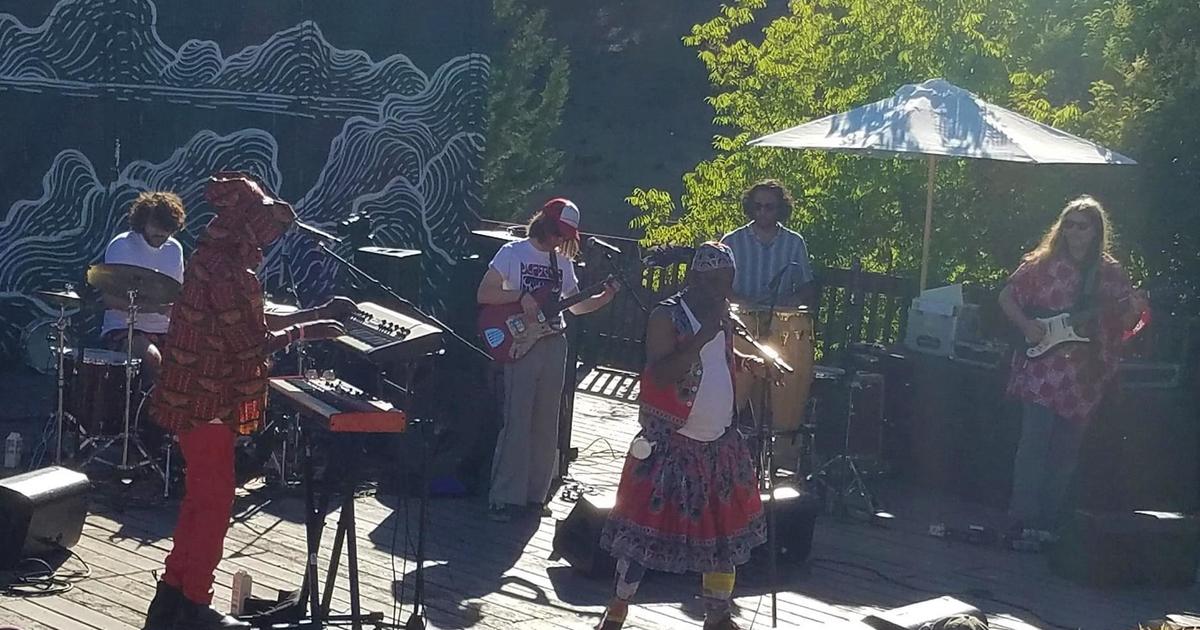Veteran Swedish Band Brings Heady Sounds To Warfield
By Dave Pehling
SAN FRANCISCO (CBS SF) -- Over the course of its nearly three decades of existence, Swedish band Opeth has evolved from an experimental death-metal juggernaut to become one of the leading exponents of heavy progressive rock. Recruited to play bass in the band in 1989 when he was only 16, Mikael Åkerfeldt would end up moving to guitar and taking over lead vocals and leadership of Opeth, expanding on its traditional death metal sound with the addition of acoustic guitars and more complex six-string harmonies.
It took the group several personnel changes to settle on the line-up that would record the band's debut album Orchid in 1994. Incorporating elements of atmospheric folk and progressive rock, the epic-length songs heard on Orchid (several clock in well over the 10-minute mark) delivered a challenging mix of dynamics and moods as Åkerfeldt's vocals moved easily from death-metal growl to sonorous croon. Opeth refined its sound and began establishing a reputation as a powerhouse live act with subsequent albums and tours, leading up to the band's landmark fifth effort in 2001 entitled Blackwater Park that broke the group to a wider audience in the United States.
That album marked Åkerfeldt's first collaboration with noted producer, musician and sonic alchemist Steve Wilson (the leader of modern progressive-rock band Porcupine Tree and the go-to engineer to craft 5.1 surround sound mixes for the likes of Jethro Tull, King Crimson and XTC). Further exploring the guitarist's love for challenging progressive sounds, the songs on Blackwater Park married extreme-metal intensity to the majesty and drama of Pink Floyd and latter-day Beatles. Åkerfeldt continued to push boundaries on Opeth's follow-up efforts, the companion piece recordings Deliverance, which stuck to their complex metallic sound, and the straight progressive-rock release Damnation.
Åkerfeldt has continued his audacious experiments in heaviness, but Opeth left death metal behind entirely after the release of their 2008 album Watershed. Cultivating a different sound that fully embraced progressive rock as well as elements of '70s-era electric jazz fusion (particularly the Fender Rhodes electric piano and Hammond B-3 organ employed by Miles Davis and his disciples), Åkerfeldt and company pursued a new vision starting with Heritage in 2011 and continuing on Pale Communion three years later.
On the band's latest opus Sorceress, the guitarist spotlights his skills with the acoustic guitar on several numbers while continuing to mine a knotty, dizzying style of heavy progressive rock that nods as much to Deep Purple and Black Sabbath as it does to Jethro Tull and Emerson, Lake and Palmer in its melody and aggressive attack. For Opeth's current tour, they are joined by ambitious, like-minded Texas-based metal band the Sword at the Warfield on Saturday night.
Opeth with the Sword
Saturday, Oct. 22, 8 p.m. $35-$45
The Warfield



